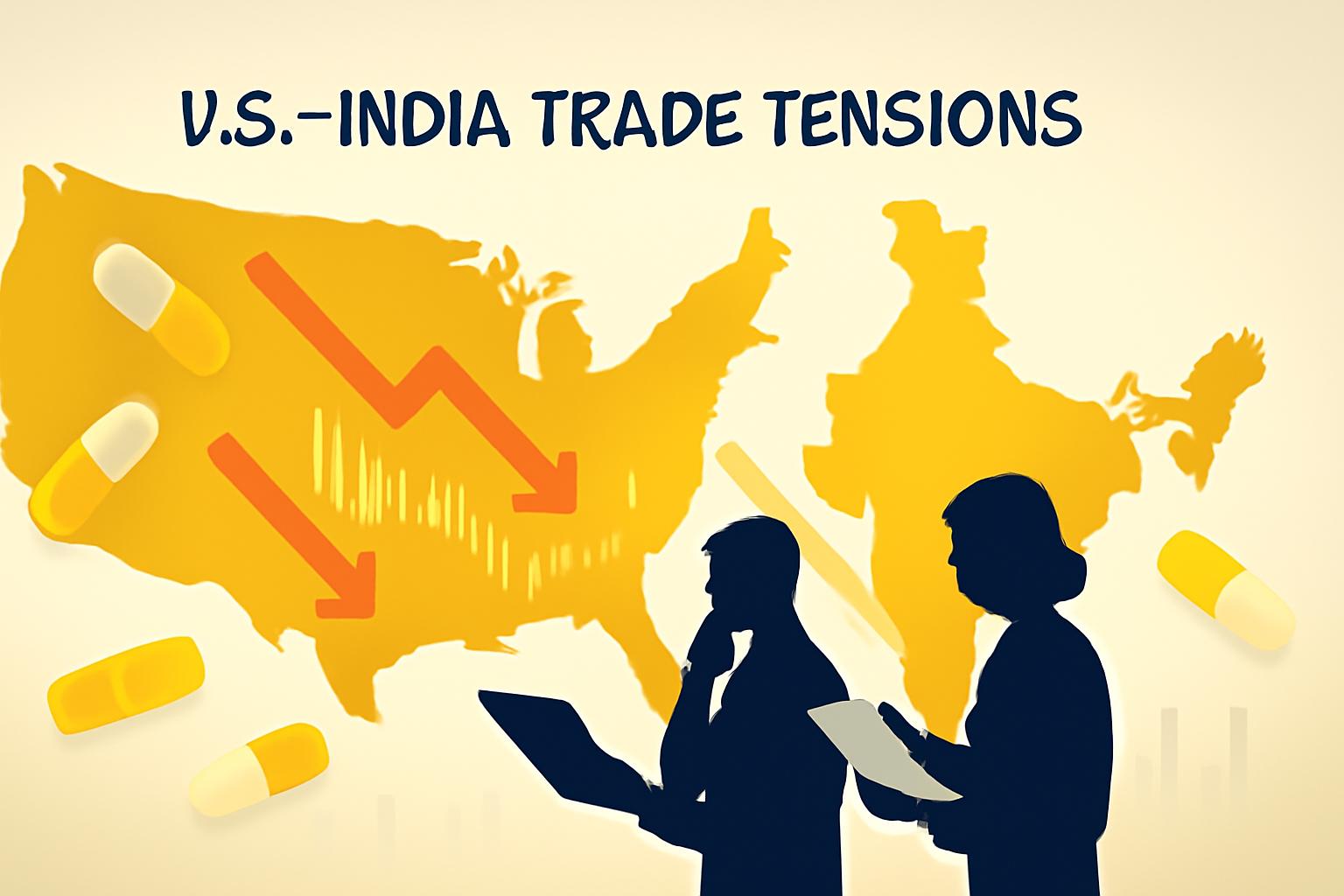U.S. Pharma Tariffs and Their Impact on Indian Generic Drugmakers
Indian generic drugmakers have largely been spared from the recent 100% U.S. tariffs on branded and patented pharmaceutical imports. Despite this, stock prices of leading Indian pharma companies, including Sun Pharmaceutical and Divi’s Laboratories, declined by 2.5% and 3.5% respectively, with the broader Nifty Pharma Index falling over 2% on Friday. Sudarshan Jain, an official at the Indian Pharmaceutical Alliance, explained to CNBC that since Indian exports to the U.S. primarily consist of generic drugs, the tariffs are unlikely to cause significant disruption to these companies’ operations or earnings.
Investor Sentiment Amid Broader Economic Pressures
Despite the limited direct impact on pharma, investor anxiety persists. Ayush Abhijeet, director of investments at White Oak Capital Partners, noted that the recent tariffs are part of a series of challenges facing the Indian economy, including an initial 25% tariff raised to 50% on certain imports and increased H-1B visa fees.
“There has been a ratcheting of challenges to the Indian economy,” Abhijeet said, highlighting the cumulative effect of recent U.S. policy moves.
Many investors are concerned that these measures could escalate further before any improvement in U.S.-India trade relations is realized.
Background on U.S. Trade Measures Against India
The U.S. initially imposed 25% tariffs on Indian goods in August, which were later increased to 50%, citing India’s purchase of Russian oil. White House trade advisor Peter Navarro controversially labeled Russia’s war in Ukraine as “Modi’s war.” These tariffs have primarily impacted sectors such as textiles, gems and jewelry, and marine products. However, the overall impact on India’s economy remains limited given its strong domestic consumption. In addition, President Donald Trump introduced a “one-time” $100,000 fee on new H-1B visa applications, a policy likely to disproportionately affect Indian workers.
Pharma Sector’s Competitive Edge in the U.S. Market
Gyanendra Tripathi, partner at BDO Partners, suggested that these U.S. policy moves might be strategic, aimed at accelerating trade negotiations with India. White Oak’s Abhijeet emphasized the resilience of India’s generic pharma exporters, noting they enjoy a competitive advantage and face limited substitution risk compared to sectors like textiles.
“Even if the U.S. were to impose tariffs on Indian generic pharma, I would not be too worried,” Abhijeet said. “Generic pharma exporters are competitive and have few substitutes, so a large part of the tariffs will be passed on to end-customers.”
FinOracleAI — Market View
The recent U.S. tariffs on branded and patented pharmaceuticals have minimal direct impact on Indian generic drugmakers, given their dominant position in the generic drug export market. However, cumulative U.S. trade and immigration policies have unsettled investors, reflecting broader geopolitical tensions.
- Opportunities: Indian generic pharma’s competitive edge and low substitution risk support long-term export growth.
- Risks: Potential escalation of U.S. trade restrictions could increase costs and pressure margins.
- Trade negotiations may create short-term volatility but could ultimately stabilize bilateral relations.
- Investor sentiment remains sensitive to U.S. policy signals beyond tariffs, including visa regulations.
Impact: Neutral to slightly negative in the short term due to investor jitters, but fundamentals of Indian generic pharma exports remain robust, supporting medium- to long-term growth prospects.













